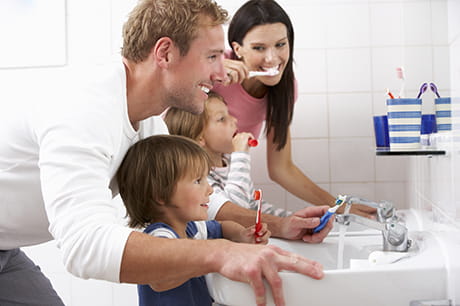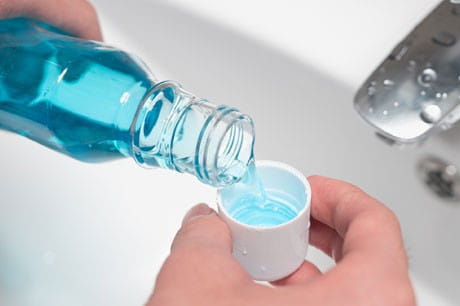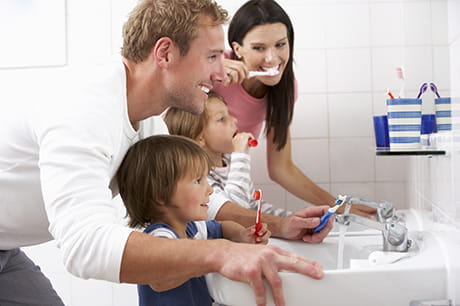What happens if you don’t brush your teeth?
Keeping your pearly whites clean isn’t just part of good oral hygiene — it also benefits your health.
If you ask someone why they brush their teeth, they’ll probably say it’s to avoid cavities, as well as have a dazzlingly white smile and fresh breath.
But the risks associated with not brushing your teeth go far beyond bad breath and coffee stains. Poor dental hygiene can have a profound impact on your health and longevity.
“Taking good care of your teeth and gums is an important part of your daily routine,” says Natalie Stinton, DMD, a pediatric dentist at Geisinger. “If you don’t brush your teeth regularly, you’re increasing your risk for a variety of health problems.”
It’s all about the bacteria
It’s an unsettling fact: The human mouth — your mouth — is the perfect home for over 700 different strains of bacteria. Most of them are harmless, but a few can cause health problems. The two most likely troublemakers are Streptococcus mutans and Porphyromonas gingivalis.
S. mutans feeds on sugars and starches in your mouth. As it does so, it produces enamel-eroding acid that makes you more susceptible to tooth decay.
P. gingivalis is less common but has more harmful implications. It’s associated with periodontitis, a progressive gum disease that leads to inflammation and tooth loss.
“Your mouth provides the right environment for these bacteria to grow and create a variety of health problems,” says Dr. Stinton. “Regularly brushing your teeth helps keep these bacteria in check.”
Five health problems tied to not brushing your teeth
Your dentist has undoubtedly warned you about poor dental hygiene: tooth decay, tooth loss, gum disease and bad breath. For many of us, the thought of spending hours in a dental chair is enough to drill that message in.
But if you need a little extra motivation to brush and floss, consider these five health problems that can take root when you’re not properly brushing your teeth:
1. Coronary artery disease
People with gum disease are twice as likely to have coronary artery disease, a type of heart disease.
“Researchers think it results from bacteria in your mouth causing inflammatory markers to enter your bloodstream,” says Dr. Stinton. “The inflammation in your circulation increases your chances of developing clots and blockages that lead to heart attacks.”
2. Dementia
Studies have shown that people who don’t brush their teeth regularly were up to 65% more likely to have dementia, adds Dr. Stinton.
Bacteria associated with poor dental hygiene may cause this problem by spreading to the brain through the vessels that connect to the jaw. P. gingivalis has been identified more often in the brains of patients with Alzheimer’s than in those without.
3. Diabetes
People with diabetes are more likely to have gum disease. Poor dental health may increase your risk for insulin resistance and diabetes because it increases inflammation.
4. Pneumonia
If you don’t brush your teeth and have an overgrowth of bacteria in your mouth, it’s possible to inhale the microbes into your lungs. There, they can cause problems such as pneumonia.
“Research has shown that improving oral hygiene among hospital patients reduced cases of hospital-acquired pneumonia by 40%,” says Dr. Stinton.
5. Pregnancy complications
Having poor dental health while pregnant raises the risk of premature birth, lower birth weight — and a child who’s more likely to develop cavities themselves. The likely culprits? Inflammation and bacteria from the mouth that colonize the placenta through the pregnant person’s bloodstream. Systemic inflammation from poor oral hygiene may also induce preterm labor.
Tips for good oral hygiene
So, what’s the best way to keep your choppers (and yourself) healthy? Follow these tips to take care of your teeth:
- Brush your teeth for at least two minutes twice a day. Use fluoride toothpaste to help prevent cavities.
- Floss at least once a day to remove hard-to-reach plaque in between your teeth. Water irrigation systems may also be helpful for those who have difficulty removing plaque with floss alone.
- Visit your dentist every six months for a deeper cleaning. Your dentist will also perform an exam to make sure your teeth are healthy.
“Poor dental hygiene can cause far-reaching health problems,” says Dr. Stinton. “Your best weapons against it are your toothbrush, toothpaste and dental floss, used twice a day.”
Next steps:
Find a dental medicine provider
Is seltzer bad for your teeth?
Meet Natalie Stinton, DMD





